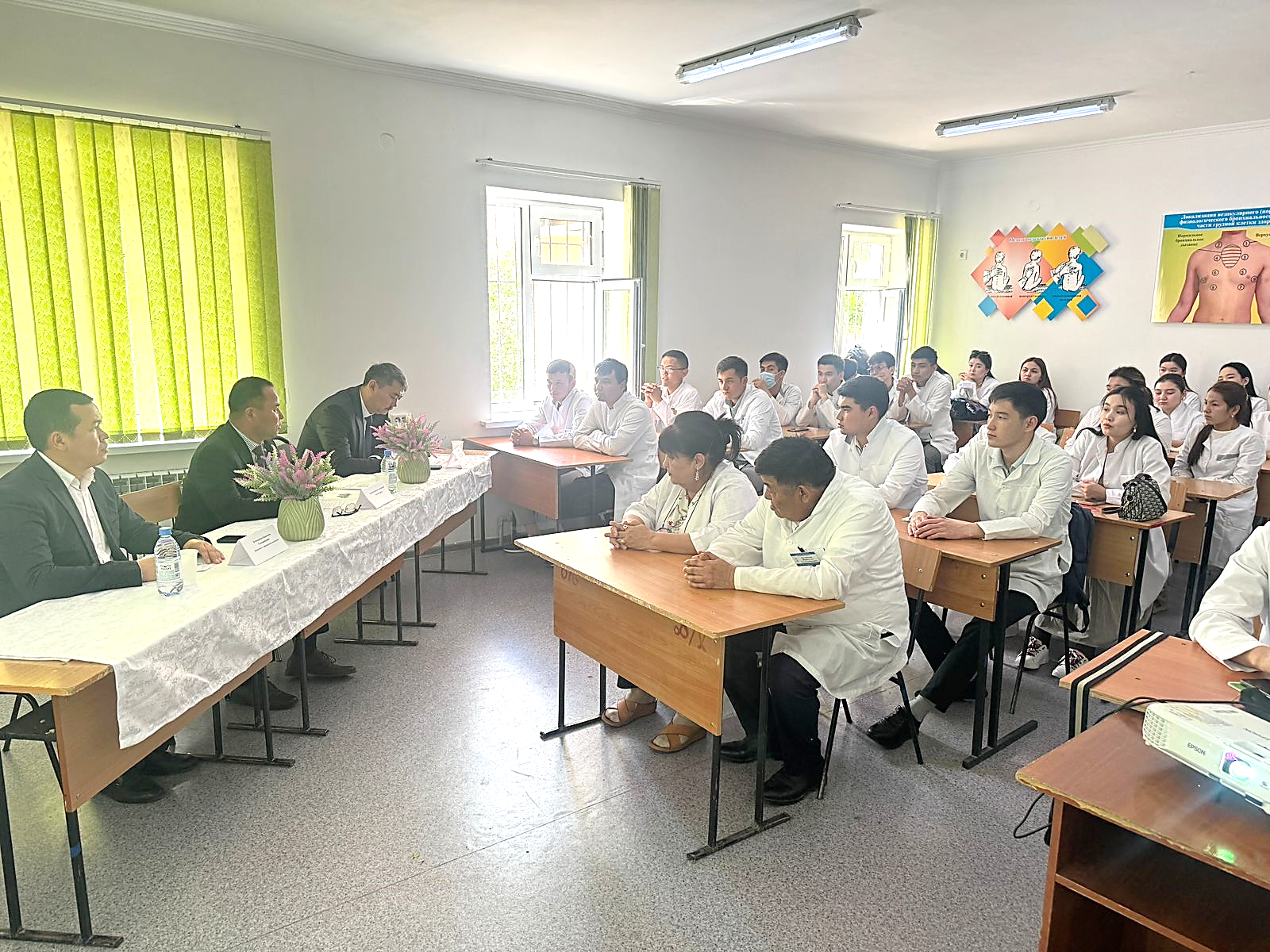Round table with students: Formation of an anti-corruption culture among young people
Corruption cannot be countered without the participation of civil society. Working with the younger generation plays a fundamentally important role in the formation of an anti-corruption culture. In order to form an anti-corruption culture among young people, a round table with students on the topic: Formation of an anti-corruption culture among young people was organized at the Department of Pediatrics-1 on 04/26/2024.
The guests of the round table were compliance officer Nurgali Alikhanov Pernebaev, Head of the Department of Social Affairs and Youth Policy Salim Erbol Kaltursynovich, teaching staff of the Department of Pediatrics-1, Pediatrics-2 and students of groups B-GMKAB-01, B-GMKAB-02.

The moderator of the round table was the head of the Department of Pediatrics-1 Kemelbekov Kanat Saukhanbekovich.
The objectives of the round table:
1. Attracting the attention of young people to the socially dangerous phenomenon of "corruption".
2. To form the concept of "corruption" and its types, to identify the causes contributing to its development and negative consequences, to give an idea of the practice of anti-corruption activities in the world. Formulate proposals for effective methods to combat various forms of corruption.
3. Formation of anti-corruption thinking among students.
4. Fostering an active civic position on combating corruption and an intolerant attitude towards various kinds of corruption manifestations.

The main tasks of anti-corruption education include: familiarization with the phenomenon of corruption (concept, characteristics, types, classifications, causes, consequences, mechanisms of dissemination, etc.); to give a general idea of the historical forms of corruption, the peculiarities of its manifestation in various spheres of life, the causes, harmful consequences of this phenomenon; the formation of intolerance to manifestations of corruption; familiarization with the possibilities and mechanisms of combating corruption; education of values and attitudes necessary for the formation of intolerance to corruption.
A significant role in the formation of the anti-corruption worldview of higher education institutions. In this regard, it should be noted that teachers play a great role in this process, since they solve the main tasks of forming an anti-corruption worldview of students.
Education is one of the most active social sectors in which specific steps of reforming the system can have a significant impact in the field of anti-corruption prevention.
Anti-corruption education is a purposeful process of education and upbringing in the interests of the individual, society and the state, based on general education programs developed within the framework of state educational standards and implemented in educational institutions to solve the problems of forming an anti-corruption worldview, raising the level of legal awareness and legal culture of students.
A very important condition for the success of the fight against corrupt behaviors among young people is the fact that anti-corruption education in educational institutions affects the subconscious components of mass consciousness.
The family plays an equally important role in the framework of anti-corruption education. Its role in this process should not be underestimated.

 561 views
561 views
